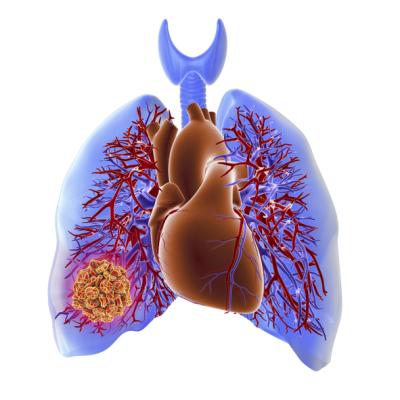
Six-month outcomes from the FlowTriever All-Comer Registry for Patient Safety and Hemodynamics (FLASH) registry were presented on May 19 as late-breaking clinical research at the Society for Cardiovascular Angiography & Interventions (SCAI) 2023 Scientific Sessions, held May 18-20 in Phoenix, AZ. The largest interventional study focused on pulmonary embolisms highlighted importance of rapid removal of blood clots for immediate and longer-term patient benefit. Image courtesy of Getty Images.
May 24, 2023 — The largest interventional study focused on pulmonary embolisms highlighted importance of rapid removal of blood clots for immediate and longer-term patient benefit during a recent conference which gathered interventional cardiologists from around the world.
Six-month outcomes from the FlowTriever All-Comer Registry for Patient Safety and Hemodynamics (FLASH) registry study were presented on May 19 as late-breaking clinical research at the Society for Cardiovascular Angiography & Interventions (SCAI) 2023 Scientific Sessions, held May 18-20 in Phoenix, AZ. The prospective multi-center study, “Long-term Outcomes following Large-Bore Thrombectomy with the FlowTriever System for the Treatment of Pulmonary Embolism from the Full 800-Patient US Cohort of the FLASH Registry” found that patients with pulmonary embolism (PE) who were treated with mechanical thrombectomy showed significant improvement in symptoms, quality of life and cardiac functions.
Pulmonary embolism, a blood clot that starts in a blood vessel in the body and travels to the lung, is the third leading cause of cardiovascular death after heart disease and stroke, noted a summary published by the organization. It further noted that survivors of PE often experience a decreased quality of life after treatment including persistent shortness of breath and a reduced capacity to exercise. Initial data shows the safety and effectiveness of long-bore thrombectomy, removal of blood clots using a mechanical catheter, for the treatment of PE rather than the current standard-of-care, anticoagulation along with the use of catheter-based interventions, but limited data exist on longer-term outcomes.
FLASH is a prospective, single-arm, multicenter registry of acute PE patients treated with the FlowTriever System (Inari Medical). Six-month clinical outcomes were assessed, including Modified Medical Research Council (Mmrc) dyspnea score, right ventricular (RV) function, 6-minute walk test (6MWT) distances, and PEmb Quality of Life (QoL) scores. The trial enrolled 800 patients across 50 US sites, 54.1% were male and the mean age was 61.2 years. Thrombolytic contraindications were reported in 32.1% of patients, and 77.1% were classified as intermediate-high-risk and 8% as high-risk. Most patients (74.8%) completed all study visits through a six-month follow-up.
In 599 patients who completed a six-month follow-up, multiple statistically significant functional and clinical improvements were reported during the study period. Findings showed the following, as reported in the SCAI 2023 news released issued after the May 19 late-breaking clinical research session:
- The proportion of patients with normal echocardiographic RV function increased from 15.1% pre-thrombectomy to 95.1% and 94% had normal pulmonary artery pressures.
- All-cause mortality was 0.3% at the 48-hr visit, 0.8% at the 30-day visit, and 4.6% at study exit (median = 199 days post-treatment).
- Patient exercise tolerance and symptoms also improved significantly after treatment. The distance a patient can walk in six minutes increased from 180 meters at 48 hours post treatment to 398 meters.
- Median mMRC dyspnea score improved from 3.0 at baseline to 0.0 (P <0.0001)
- The percent of patients with normal RV function on echocardiography increased from 15.1% at baseline to 95.1% (P <0.0001), and RV systolic pressure ≤40mm Hg improved from 28.4% at baseline to 93.9%.
- Six-month prevalence of site-reported chronic thromboembolic pulmonary hypertension was 1.0% and chronic thromboembolic disease was 1.9%.
“It’s encouraging to see the dramatic and rapid improvement in both clinical outcomes and daily activities of our patients, like taking a walk without running out of breath,” said Sameer Khandhar, MD, Assistant Professor of Clinical Medicine at Perelman School of Medicine at the University of Pennsylvania Penn Presbyterian Medical Center in Philadelphia, Penn. and study co-author. “We’re hopeful these FLASH data serve as a next step in understanding the importance of thrombectomy as a treatment option for patients that shows in their recovery and improvements in day-to-day quality of life,” Khandhar added.
In addition to significant improvement in patient symptoms, cardiac function and quality of life, long-term low mortality was also reported following treatment with the FlowTriever System. These data suggest that rapid extraction of thrombus may prevent long-term impact in PE patients, though comparative data relative to conservative management are needed.
Researchers involved in the study, which was published in the journal of Eurointervention (February 20, 2023) along with Khandhar include: Catalin Toma, MD, University of Pittsburgh School of Medicine; Wissam A. Jaber, MD, Emory Healthcare; Mitchell D. Weinberg, MD, Northwell Health; Matthew Bunte, MD, St. Luke’s Mid-America Heart Institute; Brian Stegman, MD, CentraCare; Sreedevi Gondi, MD, Baptist Health; Jeffrey Chambers, MD, Metropolitan Heart & Vascular Institute; Rohit R. Amin, MD, Ascension; Daniel A. Leung, MD, ChristianaCare; Herman Kado, MD, Millenium Cardiology; Michael A. Brown, MD, MS, Missouri Heart Center; Michael G. Sarosi, MD, Trinity Health; Ambarish P. Bhat, MD, University of Missouri Health; Jordan Castle, MD, Inland Imaging; Michael Savin, MD, Beaumont Health; Gary Siskin, MD, PhD, Community Care Physicians; Michael Rosenberg, MD, University of Minnesota Medical School; Christina Fanola, MD, University of Minnesota/Fairview Health; James M. Horowitz, MD, NYU Grossman School of Medicine/NYU Langone Health; Jeffery S. Pollak, MD, Yale University School of Medicine.
For information: www.scai.org


 June 08, 2023
June 08, 2023 

